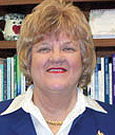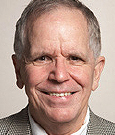A series of new workshops are teaching nurses and administrators from community hospital cancer programs how to promote, run, and improve their institutions’ clinical trials. The training focuses on specific skills and tasks, offers postcourse support and aims for long-term, measurable outcomes, including an increase in accruals.
Although 85% of cancer patients are treated at the community level, many patients have to travel to a major cancer center to participate in a clinical trial. This was part of the rationale behind the training, said Regina Cunningham, RN, PhD, Chief Nursing Executive at the Hospital of the University of Pennsylvania and one of the designers of the workshops. Distance is a known barrier to participation in trials, she said, speaking at the Annual Meeting of the Association of Community Cancer Centers (ACCC) in March. Only 5% of cancer patients in the United States participate in cancer clinical trials.
NCI-Funded Program
Training Community Nurses and Administrators to Implement Cancer Clinical Trials is funded through a grant from the National Cancer Institute. The principal investigators, in addition to Dr. Cunningham, are Marcia Grant, RN, DNSc, at City of Hope in Duarte, California, and
William Redd, PhD, of Mount Sinai in New York.
The workshops focus on practicalities, including billing and financial issues, data management, regulatory and legal issues, working with clinical trial sponsors, and ensuring quality. Over the course of 2 days, experts in cancer clinical trials provide small-group training on specific skills, such as marketing, recruitment, and developing an infrastructure to support clinical trials.
Participants develop specific goals for 6, 12, and 18 months. Goals are task-oriented; for instance under infrastructure, a goal might be to refine or create a patient tracking form or develop a computed tomography screening form. Under communication, a goal might specify developing a poster and/or a brochure for physicians’ offices.
Eligibility Requirements
Nurses and administrators from programs accredited by the American College of Surgeon’s Commission on Cancer may apply to attend the free workshops, with preference given to nurses and administrators who apply as a team. The Commission on Cancer recently revised its accreditation standards, requiring that cancer programs recruit at least 2% of their patients into clinical trials—another reason behind the creation of the training program, said Dr. Cunningham.
Following the workshop, trainees review their goals in monthly phone calls led by faculty who also present a topic, answer questions, and address problems. Trainees also have ongoing access to faculty via email and to other resources on a discussion board.
Program Evaluation
Evaluation of the training will include “hardcore outcomes,” said Dr. Cunningham, including the number of clinical trials opened, the number of patients screened, and the number of patients accrued at specified intervals after the training is completed. Baseline data are collected during the application process. Participant evaluations of the curriculum and its usefulness specifically to administrators and nurses will also be collected.
The workshops, each of which can accommodate about 40 people, will take place twice a year through 2017. The first two workshops were held last year at City of Hope and at Mount Sinai. Future workshops include one in Monrovia, California, June 5–6, 2014. A fall workshop will be held on the East Coast. For additional information, visit http://clinical-trials-training.org. ■




